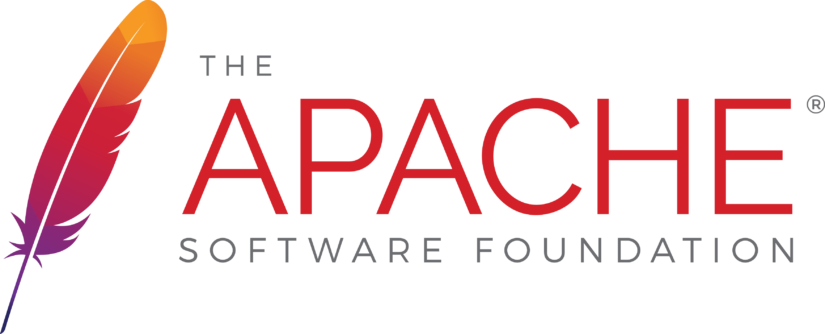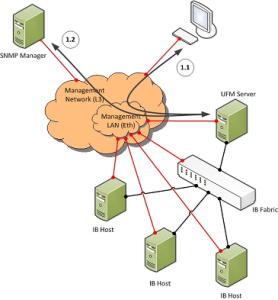
There are many things you should consider when choosing a host for your website. A host should have sufficient resources to support your website, no matter how complex it is. You should look for a web host with high uptime. A web host that is reliable should offer plenty of storage, bandwidth and scalability. You should also consider security features such as malware detection and SSL encryption.
This is the cheapest type shared hosting.
This type of hosting is the most basic and most affordable. This form of hosting puts many sites on a single server, and all of them share the same resources. Because of this, bandwidth and space are restricted on the shared server. This hosting option has some drawbacks. It can be less secure that other hosting options.
It's a good choice to start-ups or small businesses because it is the least expensive way to host websites. However, it has many limitations, including a slower loading website, limited storage and security, and a lack of features and resources. Despite these limitations, shared hosting is the simplest and cheapest way to host a website. A majority of small businesses don't have enough money to buy a dedicated server. However, this can provide greater benefits.
Dedicated hosting is the most costly type of dedicated hosting
Dedicated hosting is also known as virtual and physical server hosting. It allows you to take full control of your server. This hosting is typically more expensive than shared, but it offers better performance and flexibility. It will typically cost around $199 per month or more, and comes with a variety of additional features. Dedicated hosting is best for large enterprises that have high-end requirements.

Dedicated hosting gives you complete root access over your server, as well the network that it uses. You can have full control over the server's behavior and which software it installs. You can also install your firewall and create custom permission rules. This means you can protect your data the way it deserves to be protected. While dedicated hosting takes less time and requires greater technical expertise than shared hosting it is also more expensive.
High availability
Uptime is an important feature to look for when choosing a web host. The server's uptime is the amount of time it has been online. It is often expressed in percentages. It is usually expressed as a percentage. The industry standard for web hosts is 99.9%. Any web host that is worth their salt should have at minimum that number. The reliability of your web host and the software used to power it is important factors.
Uptime can be especially important if your site is mission critical. A million monthly visitors can mean that even a small downtime can prove to be catastrophic for your company. There are many steps you can follow to ensure your website is always up and running. It is important to find reliable web hosts that offer high uptime guarantees.
Security
Security measures should be considered when selecting a web host. Many web hosts offer some sort of security. However, you can always contact the host to inquire about particular features. Make sure the web host backs up regularly and makes updates to its software. This will help to prevent data loss and security vulnerabilities. A user-friendly control panel is also a must for web hosts. Hostinger uses hPanel's control panel. It is simple to use and has many features.
Web hosting security is an essential aspect. Without proper security, your website could be the victim of identity theft or other serious crimes.

Support
When choosing a webhost, one of the most important considerations is the level and quality of their support. Some companies offer 24/7 support while others are available between 9 and 6 PM PST. While a knowledge base can be beneficial for common problems, phone support is a better choice for more complex issues. Although web hosts are cutting back on phone support, some premium services still provide it.
A web host's infrastructure is another important aspect. You should ensure that the web host you choose has the right infrastructure to support your website. It is also important to consider whether the host provides a plan that allows for you to add resources, without having your base plan upgraded.
FAQ
Should I hire someone to design my website or do it myself.
If you don't want to spend a lot, you shouldn't hire web designers. However, if you are looking for high-quality results, hiring someone to design your website might not be worth it.
You don't need to hire expensive web designers to create websites.
If you're willing and able to invest the time and effort to create a stunning website, you can use free tools such as Dreamweaver or Photoshop to learn how to do it yourself.
It is possible to outsource your project to a freelance web developer, who will charge by the hour rather than per-project.
Can a strong portfolio make me more likely to get hired as web developer?
Yes. If you want to land a job as web designer or developer, your portfolio is essential. Portfolios should showcase examples of your skillsets and experience.
Portfolios usually include samples of past projects. These could be any project that showcases your talents. Your portfolio should include everything from mockups, wireframes, logos, brochures, websites, and even apps.
Can I create my own website with HTML & CSS?
Yes! If you've followed the steps, you should now be able create your website.
Now that you are familiar with how to create a website's structure, you will also need to be familiar with HTML and CSS programming.
HTML stands for HyperText Markup Language. It's like creating a recipe for a dish. It would include ingredients, instructions, as well as directions. HTML allows you to indicate to a computer which portions of text are bold, italicized and underlined. It also lets you know which part of the document is linked. It's the language of documents.
CSS stands for Cascading Stylesheets. You can think of CSS as a style sheet for recipes. Instead of listing each ingredient or instruction, you will write down the general rules for font sizes and spacing.
HTML tells the browser what HTML is and CSS tells it how.
Don't panic if either of these terms are confusing to you. Follow these tutorials, and you'll soon have beautiful websites.
How Do I Choose A Domain Name?
It is important to pick a quality domain name. A great domain name will help people find your site when they search for your product.
Domain names should be simple, short, easy-to-remember, relevant to your brand and unique. Ideally, you want something that people would type into their browser.
Here are some ways to choose a domain name.
* Use keywords related your niche.
* Do not use (-), symbols or hyphens.
* Don't use.net or.org domains.
* Use words that are already used.
* Avoid generic terms such as "domain" and "website".
* Check it's always available.
Statistics
- It's estimated that chatbots could reduce this by 30%. Gone are the days when chatbots were mere gimmicks – now, they're becoming ever more essential to customer-facing services. (websitebuilderexpert.com)
- At this point, it's important to note that just because a web trend is current, it doesn't mean it's necessarily right for you.48% of people cite design as the most important factor of a website, (websitebuilderexpert.com)
- Is your web design optimized for mobile? Over 50% of internet users browse websites using a mobile device. (wix.com)
- It's estimated that in 2022, over 2.14 billion people will purchase goods and services online. (wix.com)
- The average website user will read about 20% of the text on any given page, so it's crucial to entice them with an appropriate vibe. (websitebuilderexpert.com)
External Links
How To
What is website hosting?
Website hosting is the place where visitors go to visit a website. There are two types of website hosting:
-
Shared Hosting - This is your cheapest option. Your website files reside on a server controlled by someone else. When customers visit your site, their requests travel over the Internet to that server. The server owner then forwards the request to you.
-
Dedicated hosting - This is the most expensive option. Your website is only accessible from one server. Your traffic is private because no other websites have shared space on this server.
Shared hosting is cheaper than dedicated hosting for most businesses. You can use shared hosting if the company owns the server to provide the resources required for your website.
There are pros and disadvantages to each option. Here are the main differences between them:
The pros of shared hosting:
-
Lower Cost
-
Easy to Set Up
-
Frequent Updates
-
It can be found at many web hosting providers
Shared hosting can often cost as little as $10/month. But keep in mind that this price usually includes bandwidth. Bandwidth refers the data that you can transfer over the Internet. Even if only you upload photos to your blog or website, high-volume data transfers may incur additional charges.
Once you start, you'll quickly realize why you were paying so much for your previous host. Many shared hosts offer very little customer support. While they may occasionally assist you in setting up your site and other tasks, after that you are all on your own.
It is important to find a provider that provides 24-hour support. They will assist you with any problems that may arise while you're sleeping.
Cons of dedicated hosting
-
More Expensive
-
Less Common
-
Requires specific skills
You're getting everything you need with dedicated hosting to operate your website. You won't have to worry about whether you're using enough bandwidth or whether you've got enough RAM (random access memory).
This means you will need to spend more upfront. Once you get started with your online business, you will find that you don't require much technical support. You'll be able to manage your servers effectively.
Which Is Better For My Business, So Which Is Better?
The answer depends on what kind of website you want to create. If you're selling products only, shared hosting might work best. It is easy to set-up and manage. It's easy to set up and maintain, as you share a server with other sites. You will likely be updated frequently.
If you are looking to create a community around your brand, dedicated hosting is the best option. Instead of worrying about traffic, you can concentrate on building your brand.
Bluehost.com offers both. They offer unlimited data transfers per month, 24/7 support and free domain registration.